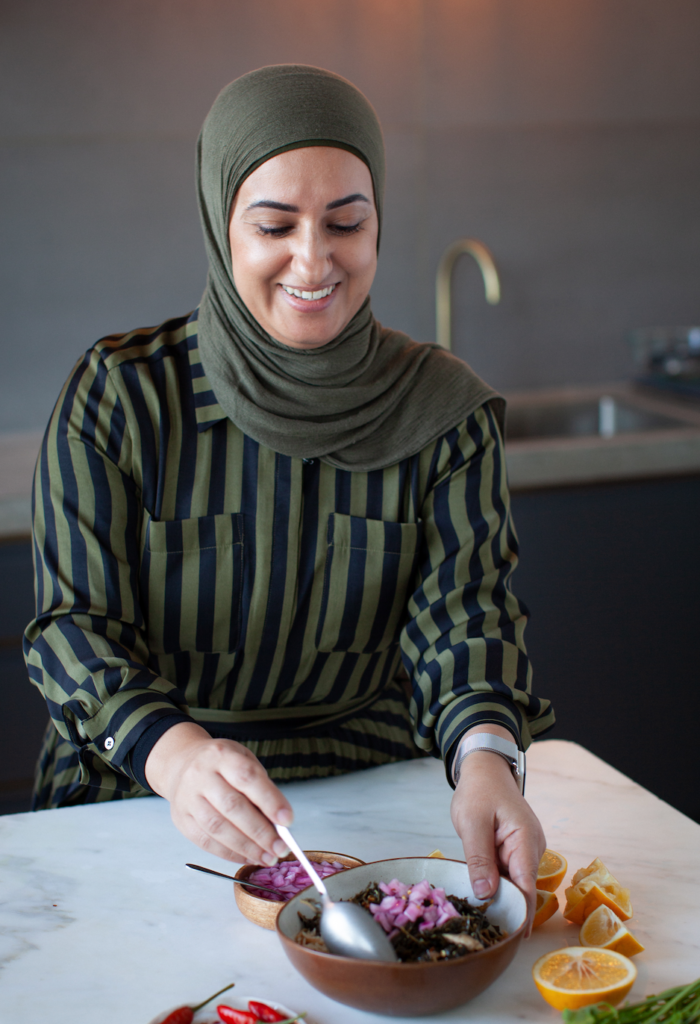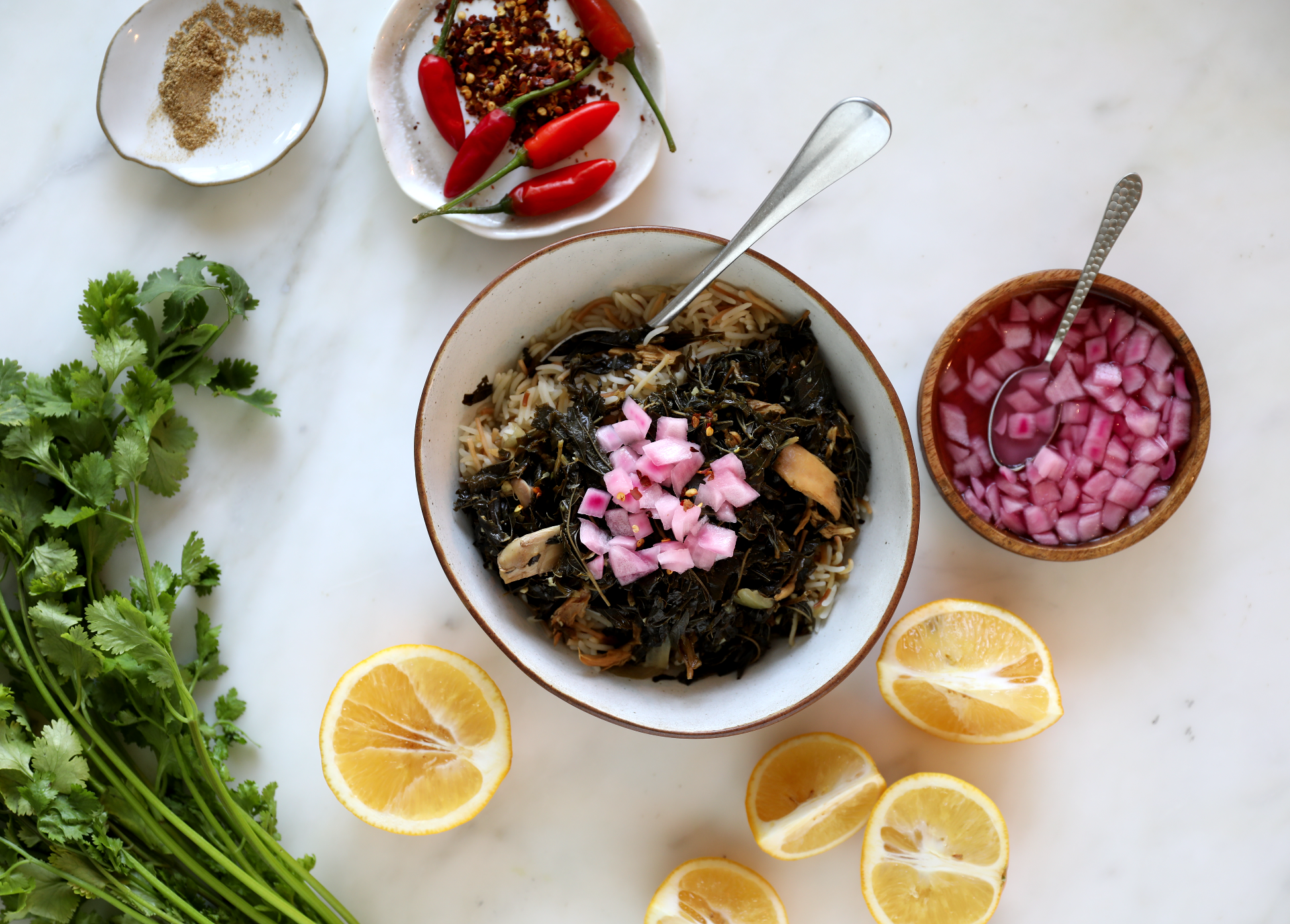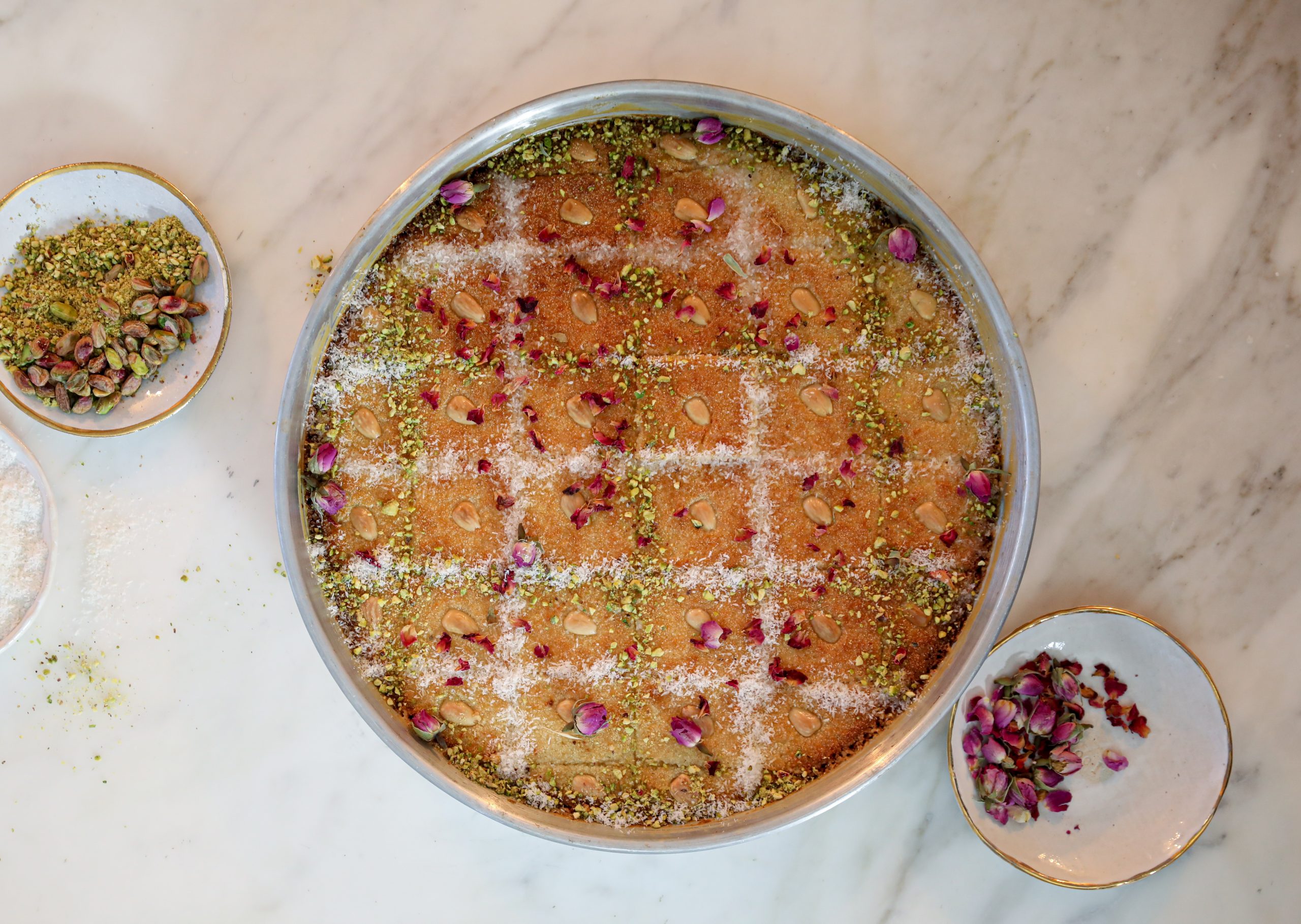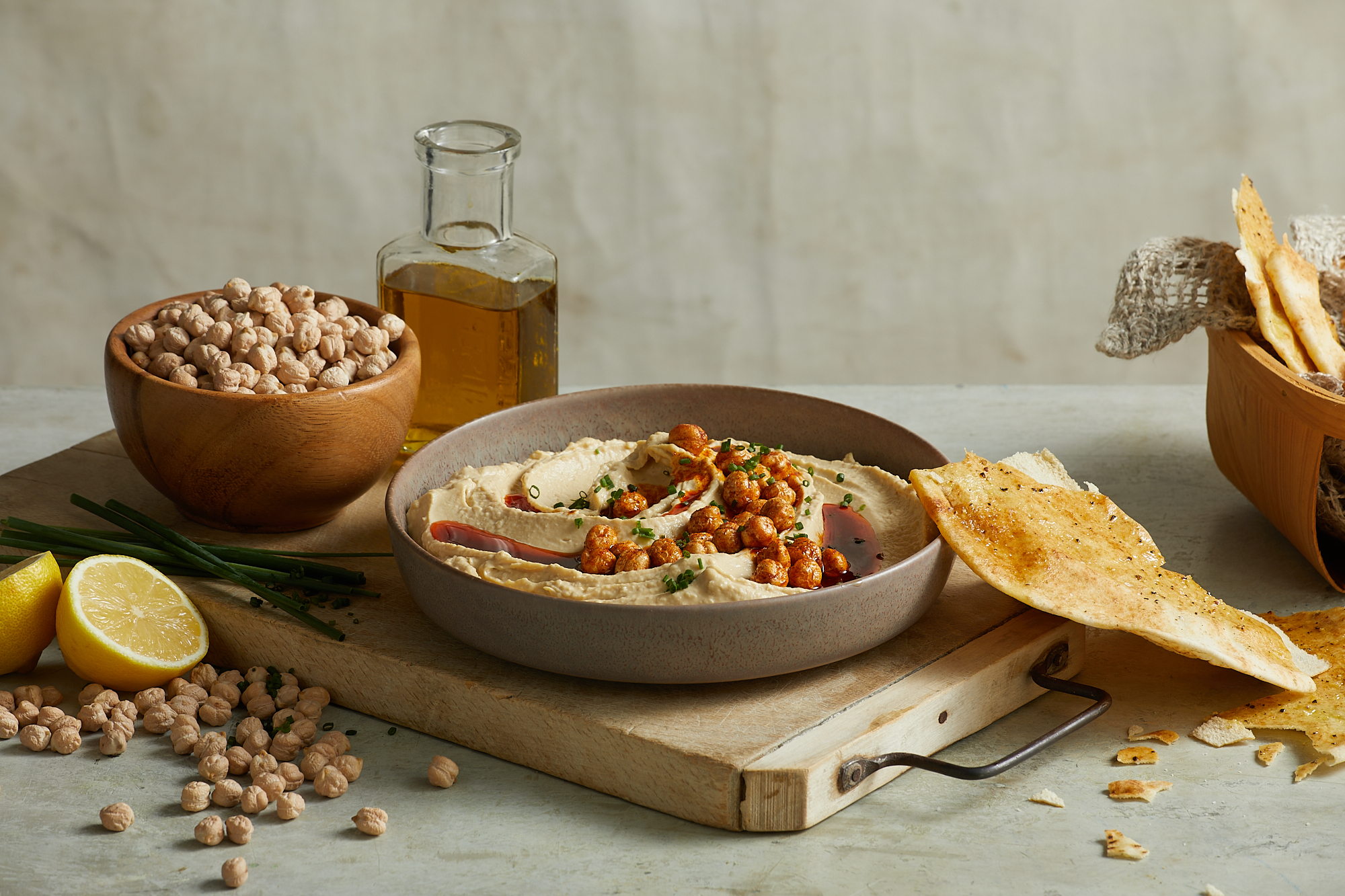Lina’s Lebanese Mloukiya
 Lebanon
Lebanon 
My parents migrated to Australia from the South of Lebanon in the 70s. My dad arrived first to set up home and my mother followed later with my four older siblings as the civil war erupted and it was simply no longer safe to stay. Their migrant story is a familiar one…Relocation for the chance of a better life for themselves and, of course, their children. My parents have now called Australia home for more than 40 years and live surrounded by their 6 kids, 24 grandchildren and 19 great-grandkids. You could say there’s a lot of us now!
I’m the youngest of my siblings. Born post-migration, I have never totally understood what it would be like to live in Lebanon. I was born a foreigner in a foreign land. Not belonging here, nor did I belong there. I struggled for years trying to grasp that sense of belonging, trying desperately to find comfort in the undeniable clash of cultures. And even though my Lebanon has always been somewhat abstract and distorted, I see it and hear it through our (often poor) attempt to maintain language. I feel it through stories, conversations and traditions that emanate from my parents and older siblings. But, more so, my Lebanon is the one I smell and taste through food.
Food nowadays plays a vital role in mending that dislocation of my Lebanese culture and identity. It has allowed me to reignite my passion for my heritage and my determination that our culture and heritage is not lost to coming generations.
Food is the bringer of good both literally and metaphorically. It’s a necessity to survive for sustenance and nutrition, of course, but food is also a feeder of the soul. It awakens memories and allows for new ones to be made. It delivers stories and creates connections between past and present and it bridges gaps and creates bonds between those who share it.
I can name quite a few Lebanese dishes that really do this for me more than others. Dishes that immediately remind me of culture, of home, of childhood, of family, of a sense of belonging that I was never sure I had. Dishes that I cook quite often now because I want my own children to hang onto some kind of connection to their roots.
The first dish and recipe that I’m sharing is hummus. It probably needs little introduction because people across the globe now know and love this ancient Arab dip. In Lebanese households, hummus makes regular appearances at many lunch and dinner and sometimes even breakfast tables. For me, over the last few years, hummus has played a vital role in my campaign to use the act of sharing food to help me build bridges between people from all walks of life, cultures and religions. It helped me break down barriers and build friendships and it gave me a kind of calling card to introduce myself to people I didn’t know. This simple dish took that commonplace act of making and sharing food and created a powerful tool for building social cohesion.
My #spreadhummusnothate campaign began in 2016 when a certain Australian politician ignited the debate about ‘allowing’ Muslims into the country and whether existing Aussie Muslims belonged here at all. I knew such ignorantly spoken conversations would make people within my community targets and I couldn’t sit back and let this happen again. So I decided to take the hastag #spreadhmmusnothate into the real world, gifting people a delicious bowl of homemade hummus with the intention to pave the way for open conversation, understanding and new friendships.
If you have only ever tasted a store-bought hummus, oh boy are you missing out! This dip, a must at every BBQ throughout my childhood, is so much more than that! Using basic pantry essentials, even the novice cook can make it. And once you taste a homemade hummus, trust me you’ll never want to buy store-bought stuff again!
The second dish I’m sharing with Recipes for Ramadan is perhaps not so well known amongst non-Arabs. It’s what’s called Mloukiya. In English, the leaf used in this dish is known as jute leaves or mallow and I’m not sure it’s used much for cooking in most parts of the world – if at all. But it’s grown all over the Middle East with a number of countries in the region considering Mloukiya a traditional dish. It is probably no surprise but I find the Lebanese version to be the most delicious.
Mloukiya isn’t a difficult dish to make but it does take a bit of time to prep and cook. This is perhaps why, when I was a kid, my mum would make enough to last a few days! At the time I hated having to eat it for days on end. ‘Why would you make so much!?’ I’d often ask her, thinking it was some kind of punishment! Ironically, I’m now a born-again Mloukiya-lover and I do the exact same thing to my own kids. Our family nickname for it is ‘ugly delicious’ but it’s my ultimate comfort dish and it brings me much joy to know my kids love it too. Do try to get hold of the leaves. They can’t be found in every suburb of Sydney but if you go to the most multicultural suburbs you will find it fresh in summer or you can buy it dry in large packs.
Share this story

Begin by making your stock. In a large pot, place whole chicken and cover with plenty of water. Bring to the boil & take off heat. Discard water & rinse pot. This gets rid of any initial impurities.
Place the chicken back in the pot. Add remaining stock ingredients to the pot & again cover with plenty of water. Bring to the boil & then reduce heat to a simmer. Allow to simmer for 60 minutes.
Once the stock is ready, remove chicken & when cool enough to handle remove meat from the bones and shred into bite size pieces. Set aside.
Strain chicken stock to be used in mloukiya. Discard spices & veg used in the stock as well as chicken bones.
To make the mloukiya, start by finely chopping the coriander leaves & garlic cloves. I usually use a food processor.
Add oil to a large pot. Add the sliced onion & saute for a few minutes as it starts to become translucent. Add the coriander & garlic. Cook for a further 5 minutes. Now add the washed & prepared mloukiya leaves. Cook this off with the onion, coriander & garlic for about 15 minutes, stirring occasionally.
Add the stock, ground coriander, chilli flakes & salt. Allow to simmer for another 1 hour.
Return shredded chicken to pot & mix through.
Serve warm with rice, a good squeeze of lemon & more chilli flakes.




